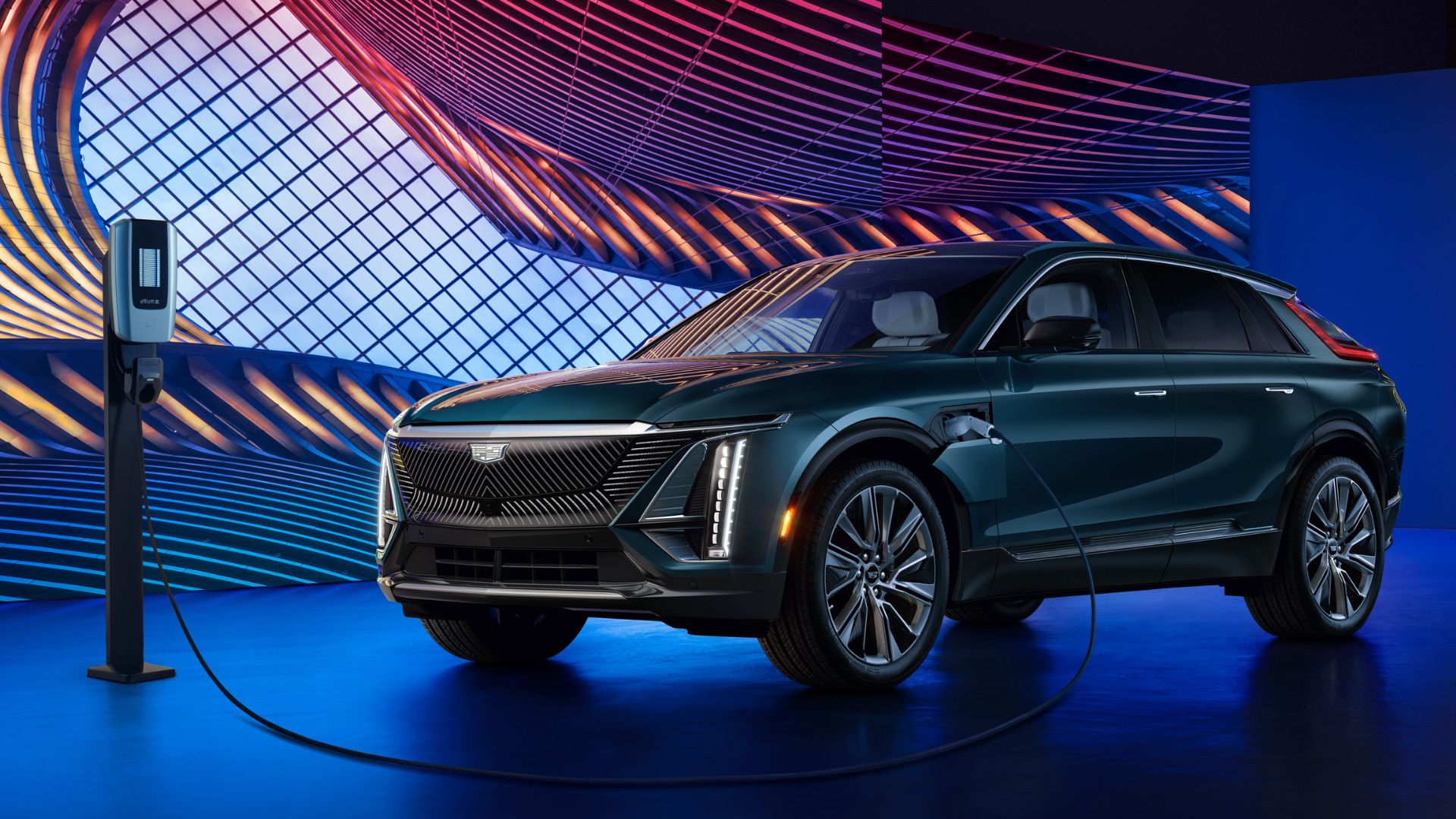Resistance To EV Mandates Grows Among Car Dealerships

Table of Contents
Financial Hurdles and Infrastructure Challenges
One of the primary reasons for resistance to EV mandates is the substantial financial investment required to adapt to the new reality of electric vehicle sales. Dealerships face high upfront costs associated with establishing the necessary infrastructure to support EV sales and service. This includes the installation of charging stations, the acquisition of specialized tools and equipment for EV servicing, and training technicians in the nuances of electric vehicle maintenance and repair.
Furthermore, the profitability of EV sales is a significant concern. Currently, the profit margins on EVs can be lower than those on traditional gasoline-powered vehicles, particularly for smaller dealerships. This, coupled with the uncertainty surrounding future government incentives and regulations, creates a climate of risk aversion. Many are worried about potentially being stuck with unsold electric vehicle inventory if consumer demand doesn't match the mandated sales quotas.
- High upfront costs for charging station installation: The cost of installing Level 2 and DC fast chargers can range significantly, depending on location and power requirements.
- Need for specialized EV technician training: Dealerships need to invest in training their staff to service and repair EVs, a process that requires specialized knowledge and certifications.
- Limited consumer demand in some regions: Consumer adoption rates for EVs vary widely depending on factors such as local electricity prices, charging infrastructure availability, and consumer awareness.
- Uncertainty about future government incentives and regulations: The fluctuating nature of government subsidies and regulations creates uncertainty and makes long-term planning difficult for dealerships.
Consumer Demand and Market Readiness
While the electric vehicle market is expanding, consumer adoption rates are not yet uniform across all regions. Range anxiety, a concern about the distance an EV can travel on a single charge, remains a significant barrier to widespread adoption. This anxiety is exacerbated by limitations in the availability and reliability of public charging infrastructure. Consumers are also often concerned about the significantly higher purchase price of electric vehicles compared to comparable gasoline-powered models.
The limited range and availability of different EV models to suit diverse consumer needs also contributes to resistance. The lack of sufficient choices in terms of vehicle size, style, and price point can deter some potential buyers. Furthermore, a lack of consumer awareness regarding the overall benefits of electric vehicles, such as lower running costs and environmental advantages, hinders wider adoption.
- Limited range of EVs available compared to gasoline vehicles: The current selection of electric vehicle models is considerably smaller than the range of gasoline-powered cars.
- Concerns about charging infrastructure availability: The lack of widespread and reliable public charging infrastructure, particularly in rural areas, is a major barrier for many potential EV buyers.
- Higher purchase prices for electric vehicles: The higher initial cost of EVs is a major deterrent for many budget-conscious consumers.
- Lack of consumer awareness about EV benefits: Many consumers are unaware of the long-term cost savings and environmental benefits associated with EVs.
The Impact of Government Regulations and Support
The effectiveness of government regulations and support mechanisms in driving EV adoption varies significantly across different jurisdictions. While some regions offer generous subsidies, tax credits, and other incentives to encourage electric vehicle sales, others have less comprehensive or inconsistent policies. This lack of uniformity creates challenges for dealerships operating in multiple regions or facing rapidly changing regulations. Inconsistent or unclear EV mandates make long-term planning and investment difficult, further fueling resistance.
- Variations in government incentives across states/countries: The level of government support for EVs varies considerably between different states and countries, creating an uneven playing field for dealerships.
- Complexity of EV mandate regulations: The regulations surrounding EV mandates can be complex and difficult to understand, making compliance challenging for dealerships.
- Lack of clarity regarding future policy changes: The uncertainty surrounding future government policies makes it difficult for dealerships to plan their investments in EV infrastructure and inventory.
- Need for consistent and predictable policy frameworks: Consistent and predictable policy frameworks are crucial to encourage investment in EV infrastructure and promote a smooth transition to electric vehicles.
Dealership Adaptations and Strategies
Despite the challenges, many dealerships are proactively adapting to the changing landscape and seeking strategies to meet EV mandate requirements. This includes investments in charging infrastructure, partnerships with charging station providers, and the implementation of comprehensive training programs for staff.
Dealerships are also focusing on marketing and outreach campaigns to educate consumers about the benefits of EVs and address common concerns such as range anxiety and charging infrastructure limitations. This proactive approach involves actively engaging with the community and promoting the benefits of EV ownership.
- Investment in charging infrastructure: Many dealerships are investing in installing charging stations on their premises to cater to the needs of EV customers.
- Staff training programs for EV sales and service: Dealerships are investing in training their staff to sell, service, and repair EVs.
- Partnerships with charging network providers: Some dealerships are partnering with charging network providers to offer convenient and reliable charging options to their customers.
- Marketing and outreach campaigns to promote EV adoption: Dealerships are using various marketing strategies to educate consumers about the benefits of EVs and promote their adoption.
Conclusion: Navigating the Future of EV Sales and Addressing Resistance to EV Mandates
The resistance to EV mandates among car dealerships stems from a complex interplay of financial hurdles, consumer demand challenges, and the impact of government regulations. Addressing these concerns is crucial to ensure a smooth and successful transition to a sustainable automotive future. Open communication and collaboration between government agencies, manufacturers, and dealerships are essential to find balanced solutions that promote electric vehicle sales without stifling the automotive industry. We must work together to build a robust infrastructure, stimulate consumer demand, and create clear and consistent policies that support both dealerships and the wider adoption of electric vehicles. Learn more about the impact of EV mandates on the automotive industry and the challenges faced by car dealerships. Let's foster a discussion on solutions that benefit everyone involved in this crucial transition.

Featured Posts
-
 Ai And Wildlife Conservation Benefits And Challenges
Apr 23, 2025
Ai And Wildlife Conservation Benefits And Challenges
Apr 23, 2025 -
 Ftc V Meta The Latest Updates On Instagram And Whats App
Apr 23, 2025
Ftc V Meta The Latest Updates On Instagram And Whats App
Apr 23, 2025 -
 Dramatic Escape Family Flees Manhole Explosion
Apr 23, 2025
Dramatic Escape Family Flees Manhole Explosion
Apr 23, 2025 -
 Blue Origin Rocket Launch Delayed Subsystem Issue Identified
Apr 23, 2025
Blue Origin Rocket Launch Delayed Subsystem Issue Identified
Apr 23, 2025 -
 Chistiy Ponedelnik 3 Marta 2025 Goda Polnoe Rukovodstvo Po Velikomu Postu
Apr 23, 2025
Chistiy Ponedelnik 3 Marta 2025 Goda Polnoe Rukovodstvo Po Velikomu Postu
Apr 23, 2025
